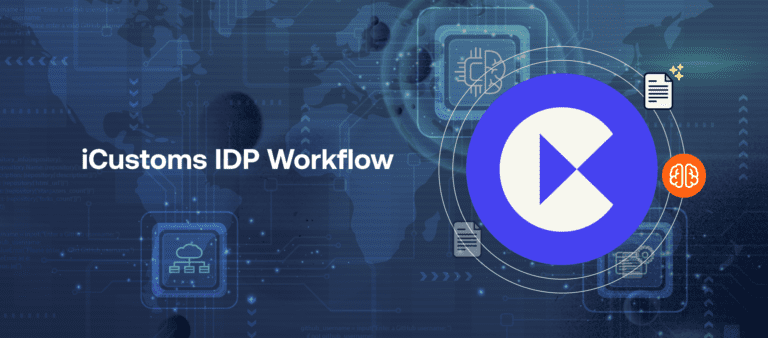Fast & Accurate ENS GB & EU ICS2 Solutions Built for You.
Tariff Classification Made Easy: A Guide for Customs Declarations
-
Freya Jane
- Director of Customer's Success
As per a study conducted by Access2Markets,
“The HS system serves as the foundation for customs tariffs and the gathering of global trade data. More than 200 countries and economies use it. It classifies over 98% of international trade merchandise.”
The study emphasises how more than 200 nations have adopted the Harmonised System, demonstrating its critical role in promoting global trade. This uniform system, which serves as a global language for categorising traded products, has various advantages. These include
- Expedited customs processing
- Fewer trade obstacles
- Enhanced trade data collection
In this connected trading world, importers play a crucial role in integrating both goods and people around the globe. When traders face challenges importing and exporting goods from different places and finding the right tariff classification, stimulating this circle is difficult.
Establishing a product’s specific location within the framework of international commerce is an essential component of the tariff code. This component involves the assignment of the correct codes to the items in question. This article examines the various advantages customs tariff numbers deliver to importers.
Specifically, we explore how this practice acts as the cornerstone for effective customs operations, cost savings, compliance, and expedited cross-border transactions. Come along with us as we investigate this topic and shed light on the benefits accrued to merchants that embrace precise tariff code practices through iCustoms.
What is Tariff Classification?
Tariff classification is the process of giving a product a number code based on nationally recognised customs tariffs or other recognised classification schemes, like the Harmonised System (HS). For customs reasons, these codes indicate the type, composition, and intended application of the items.

The Importance of Precise Custom Tariff Classification
Customs Duties: Duty rates vary depending on the code. Accurately classifying goods reduces needless expenses and disputes by assisting in the computation of tariffs payable.
Regulatory Compliance: There are rules or limitations that may apply to certain products. Adherence to these regulations is ensured by proper classification, guaranteeing compliance.
Trade Agreements: Tariff classification affects a country’s ability to qualify for preferential trade agreements, which in turn affects the cost and convenience of international trade.
Tariff Classification Proces
The key steps involved in the tariff classification process are:
Why is it Necessary to Have a Commodity Code?
When your items arrive in the UK, HMRC demands a description of their nature, and the commodities code is a convenient way to do so. It is your responsibility as the importer to make sure your products have the correct codes.
Adhering to the appropriate tariff code and possessing any required permits are essential for enabling seamless customs clearance and ensuring precise tax and duty payments. During inspection, improperly declared products run the risk of being delayed or even destroyed.
Getting your tariff code also makes clear:
- Possible limitations on your products
- Import licence requirements
- Potential to be subject to anti-dumping duties
- Qualification for duty alleviation or duty ratings
This code basically opens the door to an in-depth understanding of import laws.
What Challenges Did Importers Face During the Custom Declaration Service?
When interacting with the Customs Declaration Service (CDS), importers faced plenty of complications. It took a great deal of endurance, patience, and work to import different things and to get through the procedure successfully. They encountered numerous obstacles that were frequently quite tough to overcome. In order to shed light on the complexities and obstacles importers faced within the CDS, this section will explore the significant hurdles that they faced.
The major issue was a bunch of paperwork that required equal attention and appropriate action. Importers were required to negotiate what seemed to be endless labour when it came to navigating the customs laws, import HS codes and many other documents.
Keeping the declaration within the prescribed time was a headache for importers. Submissions of the declarations took time, and exceeding the specified limit resulted in rejections.
Most of the rejections fell on this criterion of incorrect commodities codes, which was the major issue the importers were facing. Finding the correct code and tariff classification for the goods was difficult.
Filling out the forms manually with an unclear understanding leaves loopholes pointing toward rejection. Importers used to have insufficient knowledge of the things present in the customs clearance forms, leading to delays or even rejections.
No matter how hard a trader tries, learning about other states’ trading policies and how they should comply with them is very complex. Even the customs brokers had incomplete records back in time, so importers lacked in many ways.
Read out more about the customs issues importers and Exporters face. Click here!
Why Are Traders Hesitant to Use Customs-Oriented Software for Tariff Classification?
Indeed, it is problematic for importers to rely on software, believing it will resolve all their customs issues and provide successive declarations. However, traders need to remember that several software programs provide such services and promptly manage everything.
Software such as iCDS is programmed to tackle and handle all customs-related problems. That has a chance of arising from either the importer or exporter side. It uses AI-based technology to extract the accurate Hs-code by uploading your product file.
It efficiently puts semi-structured and unstructured custom documents into an ordered manner and automatically fills in the required elements for a quick and easy declaration submission process. This procedure maintains high standards of quality while always providing a pleasant declaration experience.”
See how iCustoms helps with Tariff Classfication. Start Now!
How do iCustoms Solve the Problems of Businesses Involved in International Trade?
iCustoms core purpose is to provide everyone with efficient and vigilant customs automation processes, making it unique and a smart choice for a trader.
This section will elaborate on how our software tackles the tariff classification issue, which is the major reason for rejections in customs declarations. iCustoms has developed a system known as “product classification” that accurately characterises products and assigns them a ten-digit HS commodities code.
Other Benefits iCustoms Offers
iCustoms offers benefits to the following industries:
- Importers/exporters
- Freight forwarders
- Manufacturers
- Customs brokers
- Retailers
- E-commerce
- Supply chain
These industries get the following benefits:
- iCustoms provides declaration services to both importers and exporters working inside the EU.
- Customs brokers can use it to track shipments and monitor the cargo from arrival to departure.
- Its HS classification tool also classifies the product with its description to help the trader
- Its duty claim tool calculates the VAT percentages at a wise or country-wise level.
- An easy customs solution that also helps you in the documentation work by transforming them into the extracted information to fill out the declaration forms and submit hundreds of declarations.
Summary
To sum up, correct tariff classification is crucial to businesses that trade globally. It has an impact on the tax liability and the customs clearance process of one’s products. Accurately classifying your products will help you avoid problems and save money, making the whole process a breeze for you.
If you want an easier way to achieve this, check out iCustoms’ CDS software. It greatly simplifies the process of identifying your products and completing customs forms. Give iCustoms a try now to see how easy and hassle-free global trade can be.
FAQs
Why is custom tariff classification important for importers?
Customs tariff classification is critical for importers since it governs taxes, charges, and compliance, influencing costs and facilitating customs clearance.
What is the purpose of the tariff classification number?
The tariff classification number streamlines customs processes by identifying and classifying goods for international trade, as well as establishing the necessary tariffs, taxes, and trade rules.
What is a harmonised system of tariff classification?
A global system of codes known as the Harmonised System (HS) is used to classify commodities in international trade. It allows for uniformity in customs declarations and makes the application of regulations and duties easier.
How do I find the HS tariff classification number?
To determine the correct code for a product, obtain comprehensive details regarding its composition and intended usage, then refer to official HS code resources or customs databases to obtain the HS tariff classification number.
You may also like:
Streamline Product Classification
Uncover iClassification for precise Global Trade, Delivering Time-Saving Accuracy.
Subscribe to our Newsletter
About iCustoms
Streamline Product Classification
Uncover iClassification for precise Global Trade, Delivering Time-Saving Accuracy.


